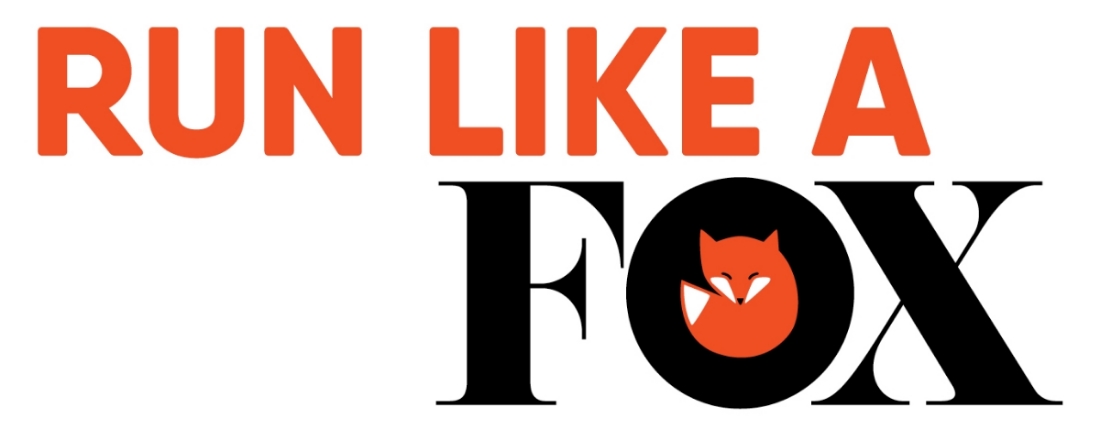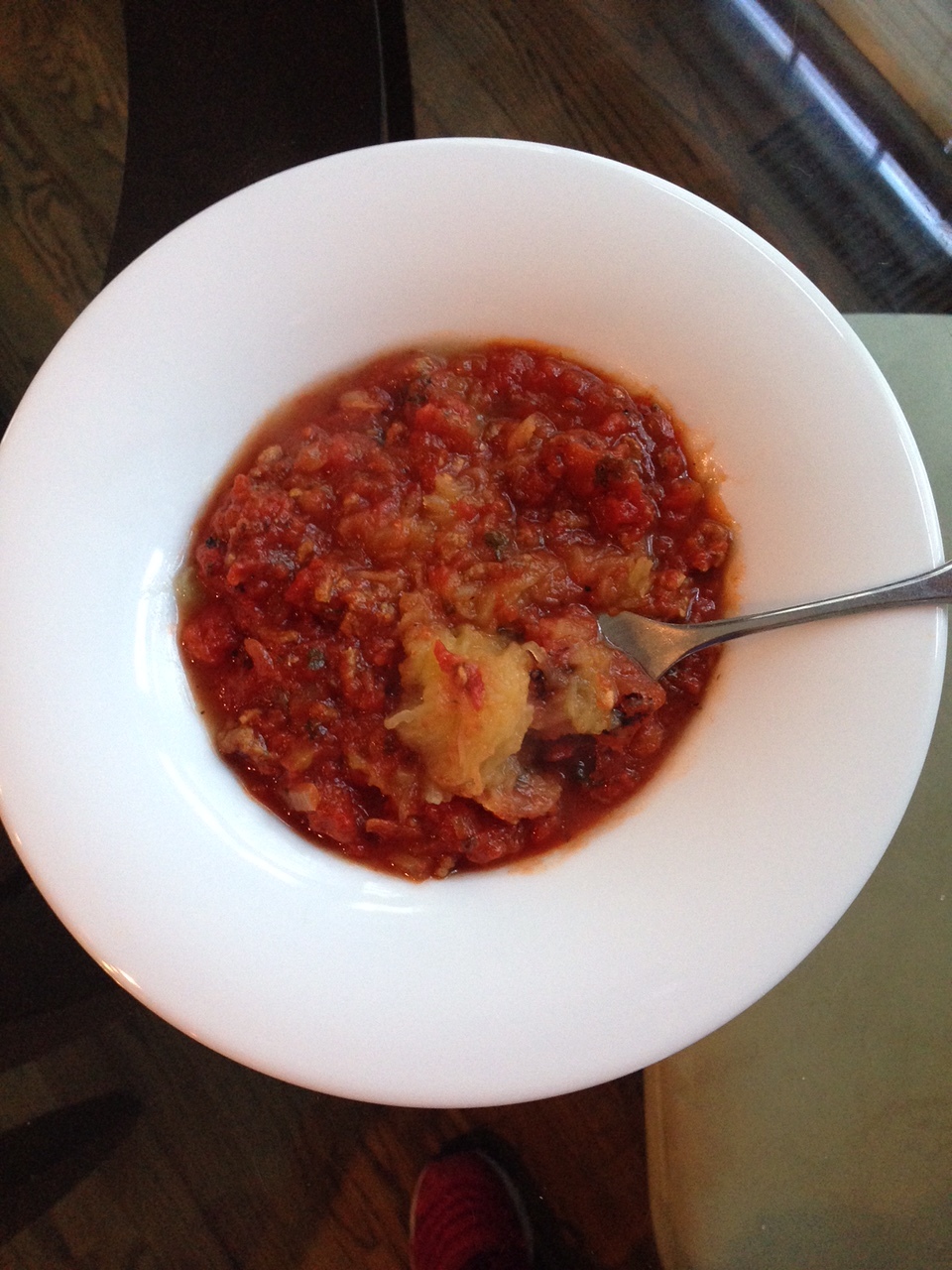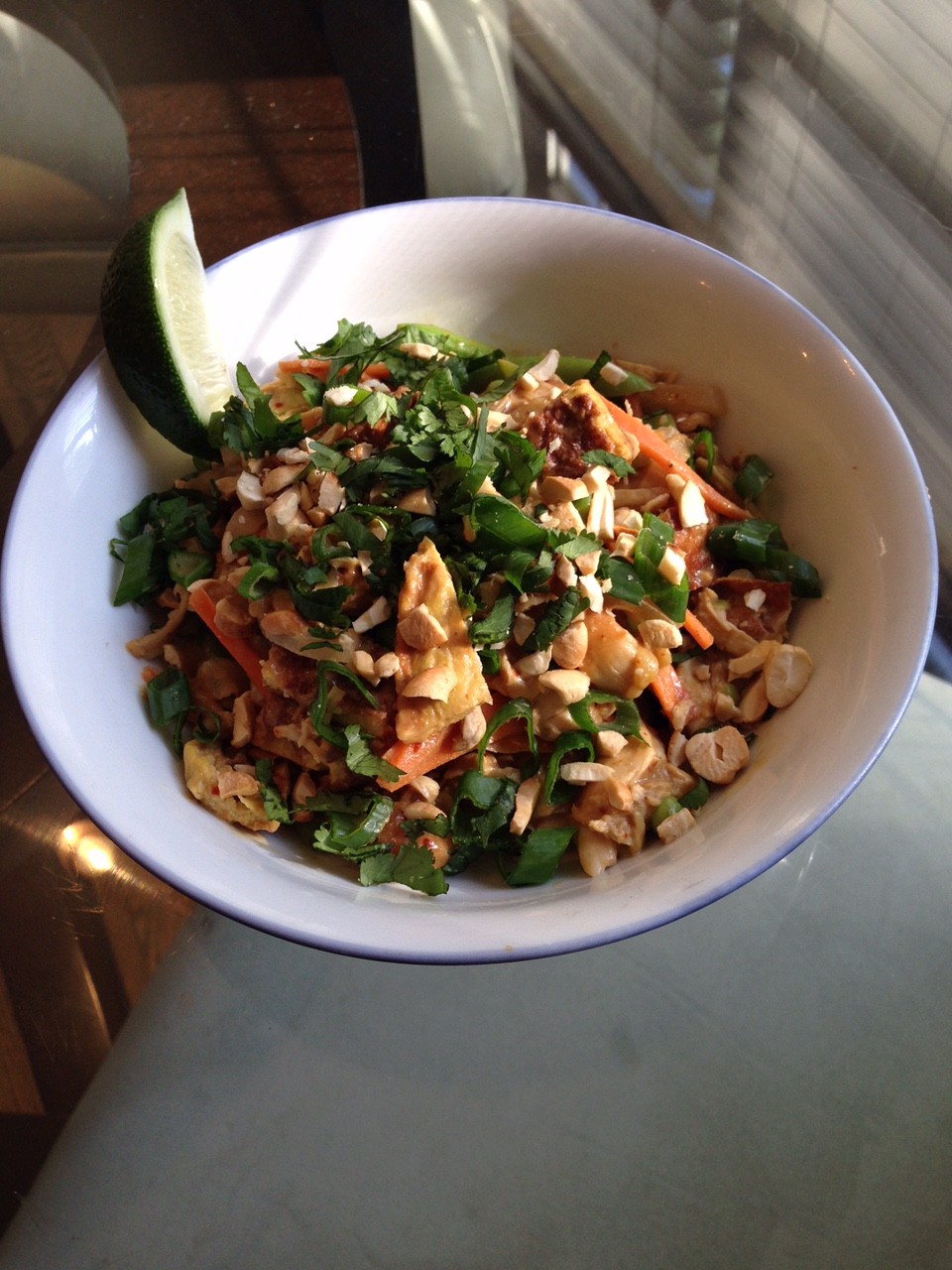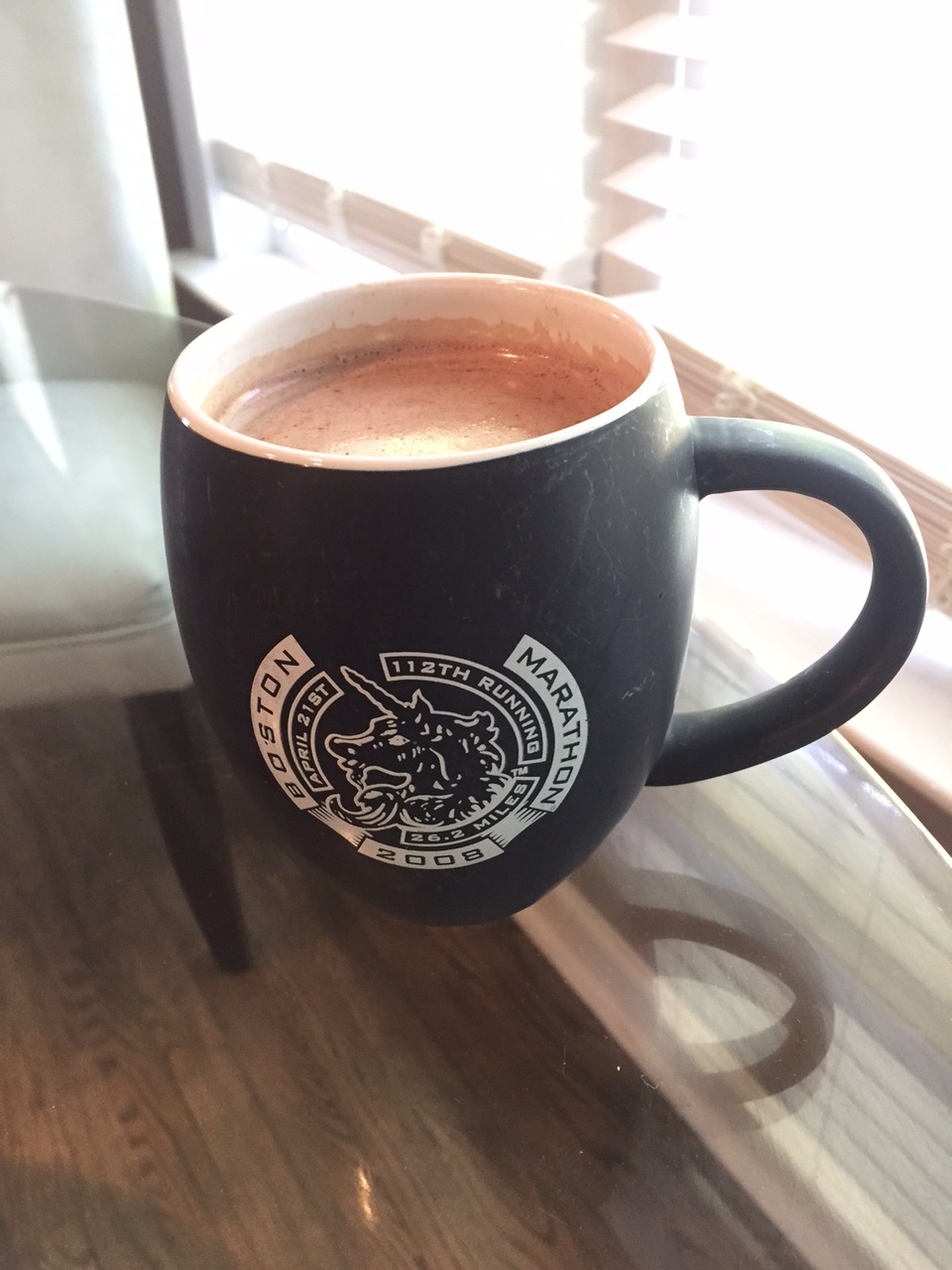Whole30 and Marathon Training
/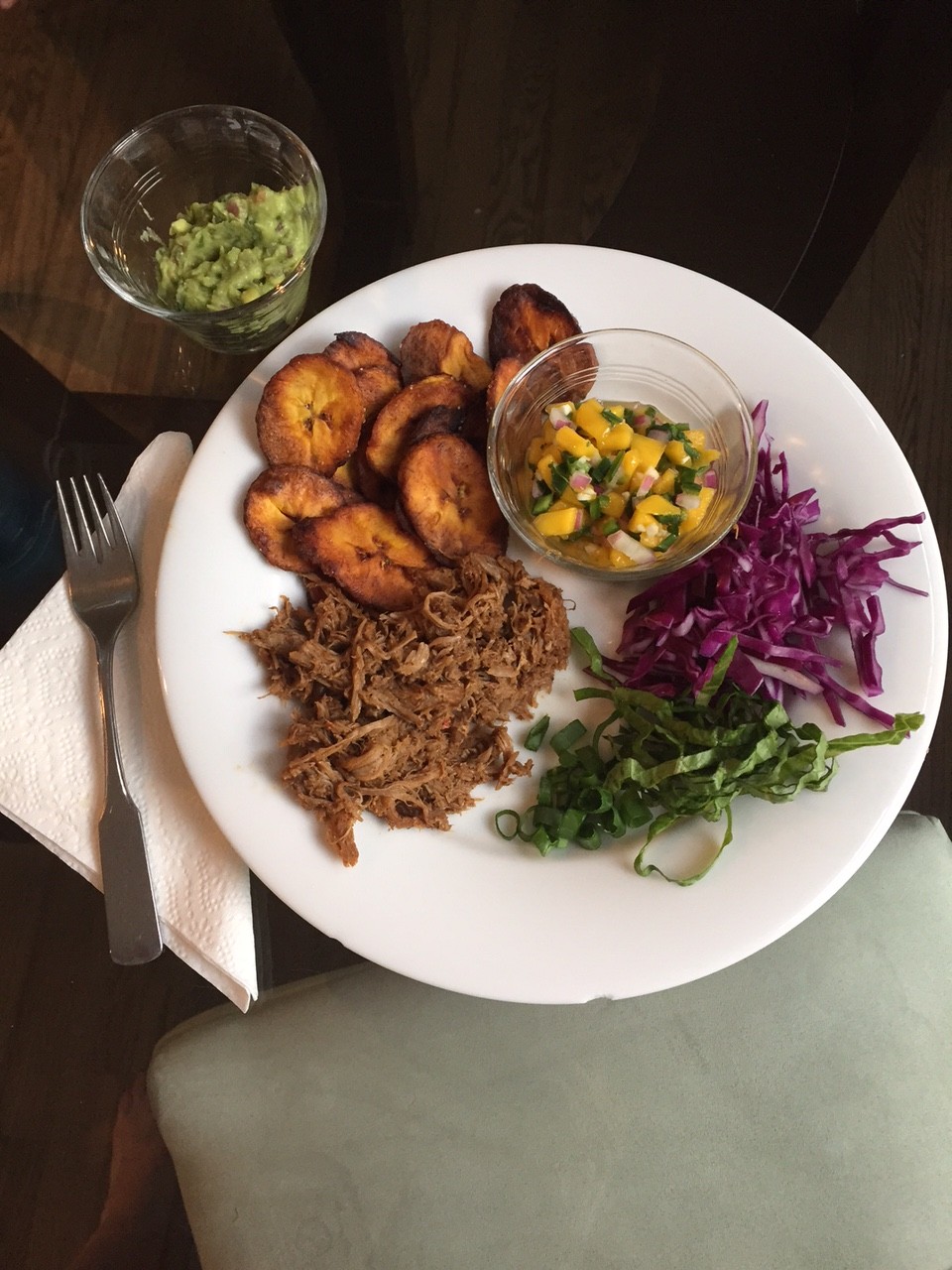 About three weeks ago my very speedy friend, Sage, challenged me to do a Whole30 (basically, a very strict Paleo diet). She ran with my group in Richmond before she moved and I've always admired her strength and speed. She's also a BodyPump instructor and was helpful in encouraging me to get my own certification to teach Pump. It was nice to know it was possible to do that well without sacrificing fast times on the road. In any case, when I caught up with her a few weeks ago she mentioned that she'd taken 4 minutes (!!!) of her half marathon PR - bringing her to a 1:20. I was stoked for her - and immediately wanted to know what she felt was responsible for her breakthrough. Her surprising answer? Whole30.
About three weeks ago my very speedy friend, Sage, challenged me to do a Whole30 (basically, a very strict Paleo diet). She ran with my group in Richmond before she moved and I've always admired her strength and speed. She's also a BodyPump instructor and was helpful in encouraging me to get my own certification to teach Pump. It was nice to know it was possible to do that well without sacrificing fast times on the road. In any case, when I caught up with her a few weeks ago she mentioned that she'd taken 4 minutes (!!!) of her half marathon PR - bringing her to a 1:20. I was stoked for her - and immediately wanted to know what she felt was responsible for her breakthrough. Her surprising answer? Whole30.
Whole30 is a program (outlined here) that the creators describe as a "short-term nutritional reset, designed to help you put an end to unhealthy cravings and habits, restore a healthy metabolism, heal your digestive tract, and balance your immune system." You eliminate sugar, grains, dairy, and legumes for 30 days in order to let your body heal and recover from any effects those foods may be causing.
I'm not big on "diets", and I felt like I ate pretty cleanly already. After being vegetarian for many years I now eat meat, but not a ton of it. I try to drink lots of water and stay away from most processed foods. So when Sage raved about this Whole30 plan I was a bit skeptical. BUT - she's never been one to push any new fads or diets and even admitted that she herself was very surprised at how much it had benefitted her. I did let her know that I wasn't looking to lose weight - and she assured me that while my body composition would probably change (I'd lose fat), that there was no calorie counting or weight-loss goal and I could easily eat enough to maintain my weight. I also wanted to make sure that I was getting in carbs. While this diet allowed some starchy vegetables (sweet potatoes), no corn or grains meant that I knew I'd have to work a bit harder to get adequate carbs to fuel my running. But with Sage's promise of increased energy, better workouts and improved recovery ringing in my ears, I figured it couldn't hurt to give it a shot.
So, armed with my list of acceptable foods (mainly grass-fed meats, veggies, fruits, and (some) nuts), I hit the grocery store.
Week 1:
The first week was...surprisingly okay! I swapped out my post-run smoothie (the peanut butter and protein powders were not allowed) for a banana with almond butter, followed with two scrambled eggs. My snacks were fruit and LaraBars and I swapped out my mocha coffee for tea. I definitely missed my mochas the most. I was used to having them a few times during the week and one of my favorite little joys in life is sitting at my kitchen table, reading or working on the computer, while sipping my hot coffee from my Boston mug. It's the little things, right? Tea just wasn't the same. I did enjoy eating healthier snacks, though I found myself eating quite a few cashews and almonds to get that "satisfied" feeling.
Lunches were pretty easy as I just added chicken and removed the cheese to my usual salads. Dinners this week were pretty bland. I cooked chili for my family and had to leave out the beans and cheese in my portion (blah!!) and then my beloved Friday night spaghetti was replaced with spaghetti squash. While it didn't taste bad, it definitely didn't have the same mouth-feel as a nice plate of pasta. I also ate quite a few sweet potatoes this week to try and make sure I was getting enough carbs.
The running went...okay. I didn't have a ton of energy, but I did have a decent tempo workout (4 x 3/4ths mile: 6:20, 6:22, 6:17, 6:21) and you all know how the 5K race went. So that was encouraging. I'd read the Whole30 timeline and knew to expect a drop in energy for a bit as my body adjusted to the new way of fueling. Perhaps it was because I was focusing on getting carbs by eating more fruit and sweet potatoes than the plan called for, but I didn't feel a huge slump - just a noticeable decrease.
Week 2:
I was really looking forward to this week as this was supposed to be the time when all the good stuff started kicking in (increased energy!! better sleep!! improved workouts!!). I kept the same breakfasts and lunches, but food boredom kicked in with the dinners and forced me to be a bit more creative. I spent some time researching recipes (I have a love/hate relationship with Pinterest) and came up with several to try. I ended up finding several winners, but each took a few hours out of my day to prep and cook. While I ended up with leftovers for each to use for lunch the next day, it was a pretty big time investment that I wasn't used to having to make. Normally we keep things pretty simple at my house and I'll cook the same meals but rotate them weekly. It's easy for my shopping list, and helps cut down on food waste since I know exactly how much I need and often have several staples already on hand. With these new recipes I found myself in the grocery store almost every day - and shelling out money for ingredients that I wouldn't normally buy (coconut amnios, almond flour, coconut oil...). But despite all the time for the food prep and cooking, eating the new recipes helped me feel less deprived and happier when it was dinnertime.
The running was up and down this week. I had a few tough runs and generally felt like I was lacking in energy, but then had a progression run that went fairly well (6:51, 6:51, 6:26, 6:13). But the long runs....oh the long runs were tough. With no sugar allowed I couldn't have any gatorade, or fuel ahead of time with my usual bagel and peanut butter. I had a banana with almond butter and a LaraBar before my 15-miler but found myself starving about 5 miles in. Very low energy on both of my long runs over these two weeks. The timeline stated that the "tiger blood" phase of boundless energy and general amazingness should happen around 12-15 days....but I was still waiting.
After 15 days on the program I woke up on Sunday (after my low-energy long run on Saturday) and was just...not feeling it. I went for my 6-mile run and felt so tired and sluggish. I came back, ate my Whole30-approved post-run breakfast and decided that I think I'd had enough. Even though I had only made it halfway through, I decided it was time to start adding back in some whole grains to see if I could get some energy back. Lunch was still a Whole30-approved salad, but I had a roll with butter later in the day and (joy of joys!) my beloved mocha. I threw the whole thing out the window at dinner when I had a tiny half piece of Pizza Hut pizza (to go with the leftovers from my Whole30 Pad Thai), and a little bit of ice cream at night. But woooo boy. Did I pay for that. My stomach was miserable for the rest of the evening (the dairy from the mocha and ice cream? Or the stuff that is in the Pizza Hut pizza?) and I slept terribly.
My run this morning (one day post-Whole30) was pretty sluggish. I went back to my normal post-run smoothie (frozen banana, peanut butter, almond milk, protein powder) plus a piece of Ezekiel bread and didn't seem to suffer any ill effects.
So what did I take away from this experience as a runner training hard and fueling via Whole30?
The BAD:
- I learned that it's tough for me to get enough carbs to fuel the hard workouts and super long runs on Whole30 without careful planning. And even still I felt that I fell short as my energy was lacking. Plus, it's tough to recommend a diet that bans peanut butter (a runner staple!!). :)
- I'm still not on board with a diet that cuts out whole, unprocessed grains and beans. I understand that gluten bothers some folks and fully support them cutting that out of their diet. But for the rest of us, whole grains can help us get the carbohydrates we need to fuel our runs and support a healthy diet.
- Life is too short to be in a constant state of deprivation. Part of the reason I run is so that I can indulge on occasion in delicious food. I get lots of enjoyment from going out with friends or family to a nice restaurant, taking my kids for a ice cream on a hot summer day, or sipping a hot chocolate with marshmallows on a snowy morning. A plan like Whole30 that doesn't allow any of that and makes it hard to be social. Now, I realize that this is a 30-day reset and not a true lifestyle diet, but even in those 30 days there were too many gatherings and social opportunities I didn't want to miss.
The GOOD:
- I learned that I was eating way too many scraps of things - the crusts from my kids sandwiches, a few chips here and there, a quick handful of chocolate chips, etc. I was snacking a lot on random things - many that were less than nutritious. The Whole30 made sure that every calorie I ate was working to fuel my body with healthy stuff - and I want to continue that trend going forward. I will definitely be paying closer attention to what I choose for snacks.
- I learned that if I don't have my mocha every day, or a glass of wine each night, when I DO have those things I enjoy them more. Moderation with those treats makes me take the time to really savor them.
- I did appreciate the fact that it made me broaden my horizons and add some delicious new meals to my repertoire. I've also learned that sugar is in EVERYTHING that is packaged (sweet potato fries - really!?!?) and I'm even more committed now to reading labels and making my own foods whenever possible. Despite the significant time commitment for recipe prep, eating foods that I knew were wholesome and without any additives was worth it.
- I didn't experience a huge energy boost. That's on my "good" list because I believe it validates the fact that I was eating fairly clean to begin with. I was hoping to use Whole30 to tighten up my diet that last 20% and so I was pleased to see that my original diet was probably "good enough". As runners many of us are always on the lookout for ways to improve our running - to squeeze that extra little bit out of our training. It was worth the experiment to find out that the extra work (and lack of a social life) that Whole30 entails was not worth it for an unnoticeable gain in energy or improvement in my running.
The Bottom line: I think for now I'm going to keep things Whole30-ish. I do plan to watch my snacking more carefully and limit treats like mochas and wine a little more. (Perhaps as a treat for completing a hard workout that day) And I'd like to continue branching out with recipes to incorporate more veggies and healthy proteins in my dinners. But I'll continue to eat whole grains and beans and I'm happy to say that peanut butter has reentered my life.
And for now? It's a good day.
Has anyone out there done the Whole30? Love it/hate it?
